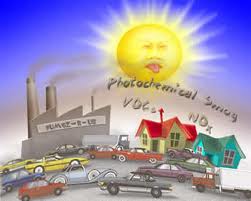The Philippine government and the private sector are in concerted efforts to improve the quality of the air the people breathe, air pollution continuous to be a serious threat to the environment and the health of millions of Filipinos.
The root cause of the poor air quality are the motor vehicles using diesel fuel emitting carbon dioxide, methane, nitrous oxide, sulfur and benzene.
Air pollution is considered a silent killer since it can trigger heart attacks in people who are vulnerable and have heart disease. Smog, vehicle exhaust, and those tiny particulates emitted by burning wood stoves all combine to form a potent killer.
Experts in the field of environmental cardiology agree that preventing heart attacks in other ways is more effective than trying to cope on individual level with air pollution.
Clean Air Initiative-Asia (CAI-Asia) is a multilateral endeavor formed in 2001 by the Asian Development Bank, the US-Asia Environmental Partnership and the World Bank as a flagship initiative for improved air quality.
It eventually evolved into the leading convenor on air quality management through the Better Air Quality workshops, the largest regional gathering of AQM stakeholders in Asia.
As part of its climate change mitigation program, the Asian Development Bank (ADB) is helping Asia transform into lower carbon growth by promoting energy efficiency, renewable energy, shift to cleaner fuels and other low carbon energy operations; efficient transport systems; improved urban sanitation and reduction of fugitive methane emissions; and suitable land use and forestry.
